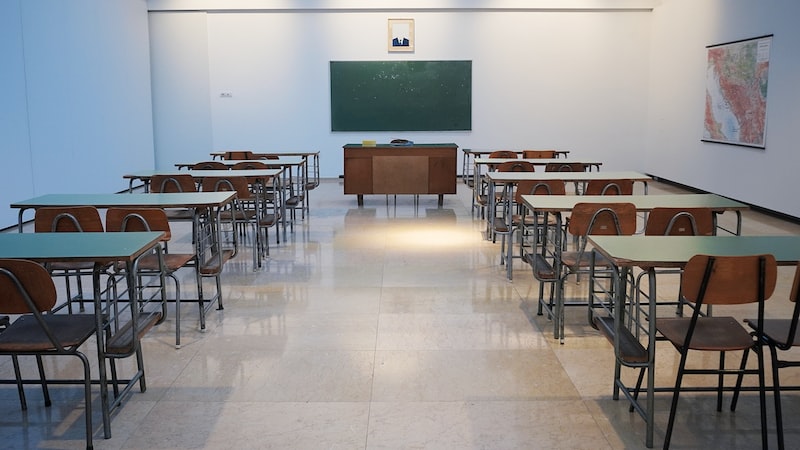Parental involvement in education plays a crucial role in fostering a supportive learning environment for children. When parents actively participate in their child’s education, it not only enhances academic performance but also nurtures their overall development. So, what does parental involvement truly mean? It goes beyond attending parent-teacher conferences or signing report cards.
Imagine a classroom where parents are seen as partners rather than outsiders. In this collaborative setting, parents engage with teachers and school staff, sharing valuable insights about their child’s strengths, challenges, and interests. By working together, they create a holistic approach to education that considers the unique needs of each student.
When parents get involved in their child’s learning journey, the impact is remarkable. They become aware of the curriculum, educational goals, and expectations, enabling them to support their child’s progress at home. Through dialogue and open communication, parents can identify areas where their child may need additional assistance, allowing for early intervention.
Moreover, parental involvement extends beyond academics. By actively participating in extracurricular activities, such as sports events, art shows, or school plays, parents demonstrate their support for their child’s diverse interests. This involvement instills a sense of pride and motivation in children, encouraging them to explore their passions further.
But how can parents foster a supportive learning environment at home? It starts with creating a designated study area, free from distractions, where children can concentrate on their homework and assignments. Parents can set regular study schedules and encourage good study habits, like time management and organization.
Additionally, engaging in meaningful conversations about school experiences allows parents to stay connected with their child’s emotional well-being. By asking open-ended questions and actively listening, parents can gain insight into their child’s thoughts, concerns, and aspirations. This empathetic approach strengthens the parent-child bond and creates a safe space for open communication.

In conclusion, parental involvement in education is vital for fostering a supportive learning environment. When parents actively engage with their child’s education, they contribute to academic success and overall growth. By establishing partnerships with teachers and participating in various school activities, parents demonstrate their commitment to their child’s education. Building a supportive learning environment involves creating a conducive study space, encouraging good study habits, and fostering open communication. Let us remember that when parents are involved, children thrive.
Effective Communication between Parents and Educators
When it comes to nurturing a child’s development, effective communication between parents and educators is crucial. This collaboration forms the cornerstone of a child’s educational journey, ensuring their holistic growth and success. But how can parents and educators establish a strong and meaningful line of communication? Let’s explore some key strategies that foster effective communication for the benefit of the child.
First and foremost, open and honest dialogue is essential. Both parents and educators should create an environment where they feel comfortable sharing their thoughts, concerns, and ideas. By actively listening to each other, they can gain valuable insights into the child’s needs and aspirations. This two-way communication builds trust and mutual respect, allowing them to work together as a united front.
Regular meetings and updates play a vital role in maintaining communication. Scheduled parent-teacher conferences provide an opportunity to discuss the child’s progress, strengths, and areas that may need improvement. These meetings offer a chance for parents to ask questions, seek clarifications, and collaborate on setting goals for their child’s education.
In addition to formal meetings, informal communication channels should be encouraged. Parents can reach out to educators through emails, phone calls, or face-to-face conversations to address any immediate concerns or share important information. On the other hand, educators can proactively initiate communication by sending newsletters, progress reports, or organizing events where parents can actively participate.
Technology can also be harnessed to enhance communication. Many schools and educational institutions now utilize online platforms or dedicated apps where parents can access real-time updates about their child’s academic performance, attendance, and upcoming events. This digital integration promotes transparency and convenience, ensuring that both parents and educators stay well-informed and engaged in the child’s learning journey.
In conclusion, effective communication between parents and educators is vital for a child’s overall growth and success. By fostering open dialogue, scheduling regular meetings, utilizing informal channels, and leveraging technology, parents and educators can establish a strong partnership that will benefit the child’s education. Collaborative efforts between parents and educators create an environment where the child feels supported, valued, and motivated to reach their full potential.
Collaborative Partnership between Parents and Schools
Are you a parent looking to actively participate in your child’s education? Do you believe that a strong partnership between parents and schools can create a nurturing environment for your child’s growth? You’re not alone! Many parents recognize the importance of working hand in hand with schools to support their children’s learning journey. In this article, we’ll delve into the benefits and strategies of a collaborative partnership between parents and schools.
First and foremost, why is a collaborative partnership so crucial? Well, imagine a tug-of-war match where parents and schools are on opposite sides. The outcome is likely to be a stalemate, leaving the child caught in the middle. However, when parents and schools unite in a collaborative effort, they become a powerful force, pulling in the same direction for the benefit of the child’s education.
One of the key advantages of a collaborative partnership is the increased support system it provides. By actively engaging with your child’s school, you gain valuable insights into their academic progress, strengths, and areas that may need improvement. This knowledge empowers you to provide targeted support at home, reinforcing what is being taught in the classroom.
Effective communication is another vital aspect of collaborative partnerships. When parents and schools maintain open lines of communication, a wealth of information can be shared. Regular parent-teacher meetings, email exchanges, or even online platforms allow for ongoing discussions about a child’s development. Through this continuous dialogue, parents can better understand the educational approach used by the school and contribute their own insights and experiences.
Furthermore, a collaborative partnership between parents and schools fosters a sense of belonging for both children and parents alike. When parents actively participate in school activities or volunteer their time, they demonstrate their commitment to their child’s education. This involvement not only strengthens the bond between parent and child but also creates a positive school community, where everyone feels valued and supported.
In conclusion, a collaborative partnership between parents and schools is a powerful catalyst for a child’s educational success. By working together, parents and schools can provide comprehensive support, effective communication, and a nurturing environment that nurtures the growth of every child. So, let’s embrace this collaboration and unlock the full potential of our children’s education!
Engaging Parents in Student’s Academic Progress
Are you curious about how to engage parents in their child’s academic progress? Well, you’re in the right place! In this article, we’ll explore effective strategies that can foster a strong partnership between parents and schools, ultimately benefiting students’ educational journey.
One key approach to engaging parents is communication. Schools should establish clear channels of communication that are easily accessible for parents. This can include regular newsletters, emails, or even a dedicated parent portal on the school’s website. By providing updates on student performance, upcoming events, and important deadlines, parents can stay informed and actively participate in their child’s education.
Another way to involve parents is through parent-teacher conferences. These meetings offer an opportunity for educators to share insights into a student’s progress and highlight areas for improvement. Encouraging parents to ask questions and express concerns helps create a collaborative environment where everyone’s voices are heard.
Schools can also organize workshops and seminars that provide parents with valuable resources and information. Topics could range from study tips and homework guidelines to understanding standardized testing. By equipping parents with knowledge, they can better support their children’s learning at home.
Furthermore, involving parents in decision-making processes can enhance their engagement. Schools can form parent-teacher associations or committees where parents can contribute ideas and insights. This involvement empowers parents to have a voice in shaping educational policies and practices.
It’s vital to remember that engaging parents goes beyond mere participation in school activities. Building relationships based on trust and respect is crucial. Schools can host social events such as family fun days or open houses, creating opportunities for parents to interact with teachers and other families. When parents feel welcome and valued, they are more likely to be actively engaged in their child’s academic journey.
In conclusion, engaging parents in their child’s academic progress is a collaborative effort that requires effective communication, involvement, and relationship-building. By implementing these strategies, schools can create a supportive environment where parents are partners in their children’s education. Together, parents and schools can empower students to reach their full potential and achieve academic success.
Parental Involvement in Homework and Study Habits
When it comes to homework and study habits, parental involvement plays a crucial role in shaping a child’s academic success. But what does it mean for parents to be involved? It goes beyond simply checking completed assignments or signing off on report cards. True parental involvement means actively participating in a child’s learning journey, fostering a supportive environment, and instilling effective study habits. So, how can parents effectively engage in their child’s homework and study routines? Let’s dive in and explore some strategies.
First and foremost, communication is key. Regularly talking with your child about their schoolwork and assignments helps create an open line of dialogue. Ask questions that encourage critical thinking and spark curiosity. By showing interest in their academic pursuits, you not only convey the importance of education but also provide an opportunity to address any challenges they might be facing.
Setting a structured routine can work wonders for homework and study habits. Establish a designated study area at home that is quiet, well-lit, and free from distractions. Encourage your child to follow a consistent schedule for completing assignments, allowing for breaks to prevent burnout. This routine will help them develop discipline and time management skills, which are invaluable throughout their educational journey and beyond.
As a parent, it’s essential to act as a guide rather than a dictator when it comes to homework. Offer assistance and support when needed, but also encourage independence and problem-solving. Teach your child effective study techniques, such as creating outlines, using mnemonic devices, or practicing active reading. Help them understand that the goal is not just to complete assignments, but to comprehend and retain information.
Incorporating real-life connections can make learning more engaging and relatable. For example, if your child is studying math, relate it to everyday situations like calculating expenses while grocery shopping or measuring ingredients for a recipe. By establishing these connections, you help them see the relevance of what they are learning and foster a deeper understanding.
Remember, parental involvement in homework and study habits is an ongoing process. Be patient, supportive, and flexible. Every child is unique, so adapt your approach to suit their individual needs. Celebrate their achievements, no matter how small, and offer encouragement during challenging times. By actively participating in their educational journey, you lay the foundation for lifelong learning and academic success.
Encouraging Parental Participation in School Activities
Are you a parent looking for ways to get more involved in your child’s school activities? Well, you’ve come to the right place! Encouraging parental participation in school activities is not only beneficial for your child but also for you as a parent. In this article, we will explore some practical tips and strategies to help you become an actively engaged parent in your child’s educational journey.
First and foremost, communication is key. Stay informed about upcoming events, parent-teacher meetings, and school newsletters. Make sure you read and respond to any communication from the school promptly. This will demonstrate your interest and commitment to your child’s education.
Attending school events is another great way to show your support. Whether it’s a sports game, a musical performance, or a science fair, be present and cheer your child on. Your presence alone can make a significant impact on their confidence and motivation.
Volunteering is a fantastic opportunity to get involved in school activities. Many schools have volunteer programs where parents can contribute their time and skills. You could assist in the library, organize fundraisers, or even share your expertise by giving guest lectures. Not only will you be actively engaged, but you’ll also be setting an excellent example for your child by showing them the value of giving back to the community.
Building relationships with teachers and staff is crucial. Attend parent-teacher conferences to discuss your child’s progress and address any concerns. Establishing open lines of communication will foster a collaborative relationship between you and the educators, ultimately benefiting your child’s learning experience.
Don’t forget to engage with other parents as well. Join parent associations or attend parent support groups. These platforms provide opportunities for you to connect with fellow parents, exchange ideas, and collectively work towards improving the school environment for all children.
In conclusion, encouraging parental participation in school activities is a win-win for both parents and children. By staying informed, attending events, volunteering, building relationships, and engaging with other parents, you can actively contribute to your child’s educational journey. So, let’s roll up our sleeves and become the enthusiastic and involved parents our children deserve!
Addressing Barriers to Parental Involvement in Education
Are you a parent who wants to be more involved in your child’s education? You’re not alone! Many parents recognize the importance of being actively engaged in their child’s learning journey. However, there are often barriers that can make it challenging for parents to participate fully. Let’s explore some of these barriers and discover ways to overcome them.
One common barrier is a lack of information. Parents may feel uninformed about school policies, curriculum changes, or even how to effectively support their child’s learning at home. To address this, schools can improve communication channels by sending regular newsletters, organizing informative workshops, and utilizing user-friendly online platforms. By providing clear and accessible information, parents can stay informed and actively engage in their child’s education.
Another hurdle is time constraints. Many parents have busy schedules with work and other responsibilities, making it difficult to find time for school-related activities. Schools can help by offering flexible options for involvement, such as evening or weekend events, virtual meetings, or even volunteer opportunities that can be done remotely. By accommodating diverse schedules, parents can find meaningful ways to participate without sacrificing their other commitments.
Language and cultural barriers also play a significant role. For non-native English speakers or parents from different cultural backgrounds, feeling disconnected from the educational system can be discouraging. Schools can foster inclusivity by providing translated materials, offering interpreter services during meetings, and celebrating diversity through culturally sensitive events. Creating an inclusive environment helps all parents feel valued and encourages their active participation.

Financial constraints can also limit parental involvement. Field trips, school supplies, and extracurricular activities can come with expenses that not all families can afford. Schools can address this by seeking community partnerships, establishing scholarship programs, or organizing fundraisers to ensure equal opportunities for all students. When financial barriers are minimized, parents can engage without worrying about the associated costs.
In conclusion, addressing barriers to parental involvement in education requires proactive efforts from both schools and parents. By improving communication, providing flexibility, fostering inclusivity, and minimizing financial constraints, we can create an environment where every parent can actively contribute to their child’s educational journey. Remember, your involvement matters—it can make a significant difference in your child’s academic success and overall development. So let’s break down these barriers and work together to create a brighter future for our children!












Leave a Reply